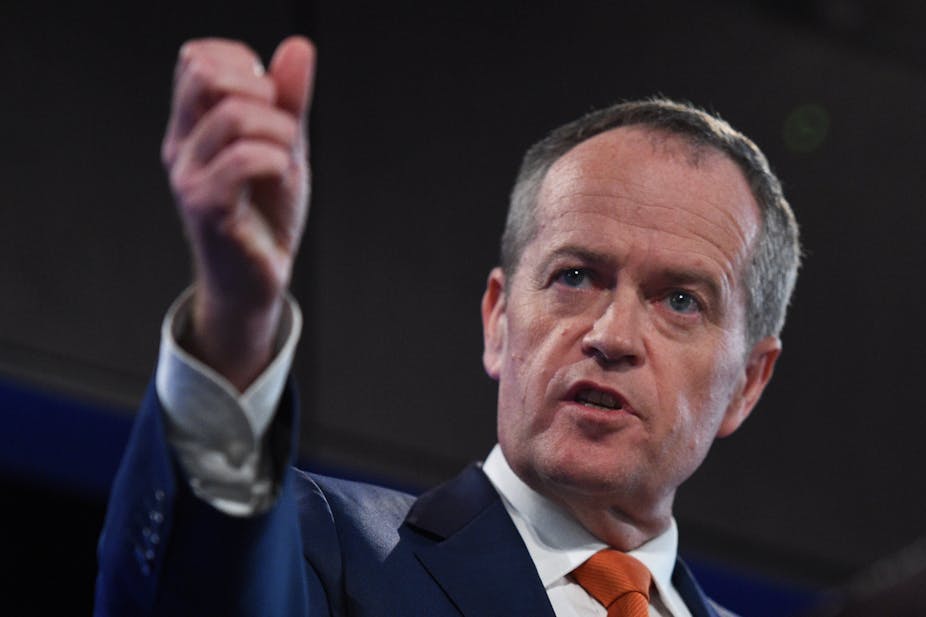Bill Shorten has proposed specific changes to the budget’s controversial superannuation reforms, which have been under attack from the conservatives in the Coalition ranks.
Addressing the National Press Club, Shorten said the “retrospective” element of the government’s policy – which has upset critics – should be removed. Instead, the A$500,000 lifetime cap on non-concessional (after tax) contributions should apply from budget night, rather than from 2007, as in the government plan, he said.
Shorten also said the threshold for high-income super contributions should be lowered from $250,000 to $200,000. This is where the tax rate increases from 15% to 30%. The threshold is $300,000 currently.
“Together, our measures will improve the budget over the forward estimates by $238 million and $4.4 billion over the decade,” he said. “There would be more budget savings – without retrospectivity.”
But in the name of closing prospective new loopholes he said Labor would oppose three of the government’s measures. These would:
allow catch-up concessional superannuation contributions. The government says the measure would help women who take breaks from the workforce for family reasons;
harmonise contribution rules for those aged 65 to 74. This is to make it easier for older people to build super; and
allow tax deductions for personal superannuation contributions. This budget change was to help the self-employed and those unable to salary sacrifice.
“This new spending cannot be a priority, especially when it will set the budget back $1.5 billion over the forward estimates and $14.7 billion over ten years,” Shorten said.
But Treasurer Scott Morrison slammed Labor’s compromise, saying it would be bad for women, carers, contractors, small businesses and the people who worked for them, parents juggling the work-life balance who wanted to provide for their retirement, and older Australians.
“Their changes are more suited to the economy of the 1970s than a 21st Century economy where people have flexible work patterns, shared responsibilities in their families and different sources of income over the course of their life,” Morrison said in a statement with Revenue Minister Kelly O'Dwyer.
Morrison is continuing to explain the package to Coalition backbenchers and negotiate some changes.
While Shorten presented Labor as strongly committed to budget repair, and appeared to flag it will pass the government’s $6.5 billion bill of savings measures, he stepped up his attack on the Coalition’s planned plebiscite on same-sex marriage.
He said Labor would reintroduce its private member’s bill when parliament started. Parliament could achieve same-sex marriage immediately, with a free vote, he said.
“Really, what is the point of a compulsory plebiscite when accepting the outcome is voluntary? How can Mr Turnbull seriously fine Australians for not voting – when he cannot make Liberal MPs acknowledge the result?”
While Shorten seems to be firming up against voting for setting up the plebiscite, he refused to be pinned down under questioning.
Publicity for Shorten was somewhat overshadowed by controversy over a police search at Parliament House in relation to the Australian Federal Police (AFP) investigation of a leak to Labor of information about the National Broadband Network (NBN).
The shadow special minister of state, Stephen Conroy, said: “NBN Co initiated this investigation to cover up Malcolm Turnbull’s gross mismanagement of the National Broadband Network (NBN) … This is a shameful attempt by Malcolm Turnbull to hide his incompetent administration of the NBN.”
Turnbull accused Conroy of attacking the integrity of the AFP. “He has accused the Australian Federal Police of acting under political direction which is an outrageous suggestion – he knows that is untrue.”

